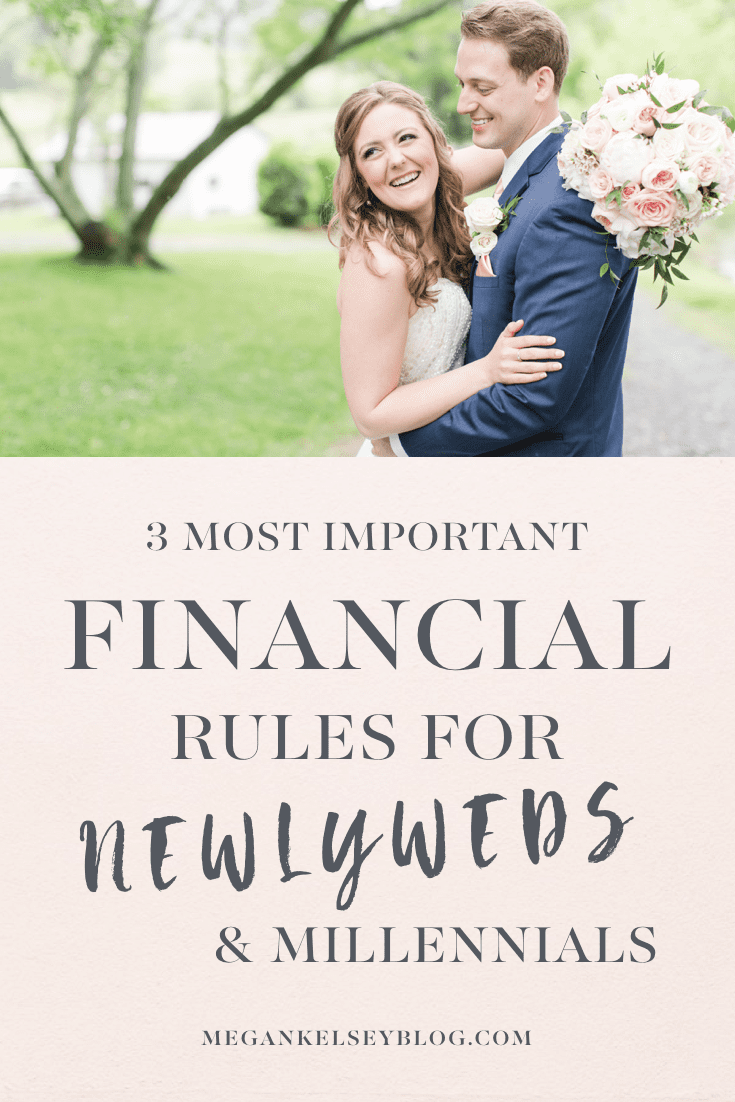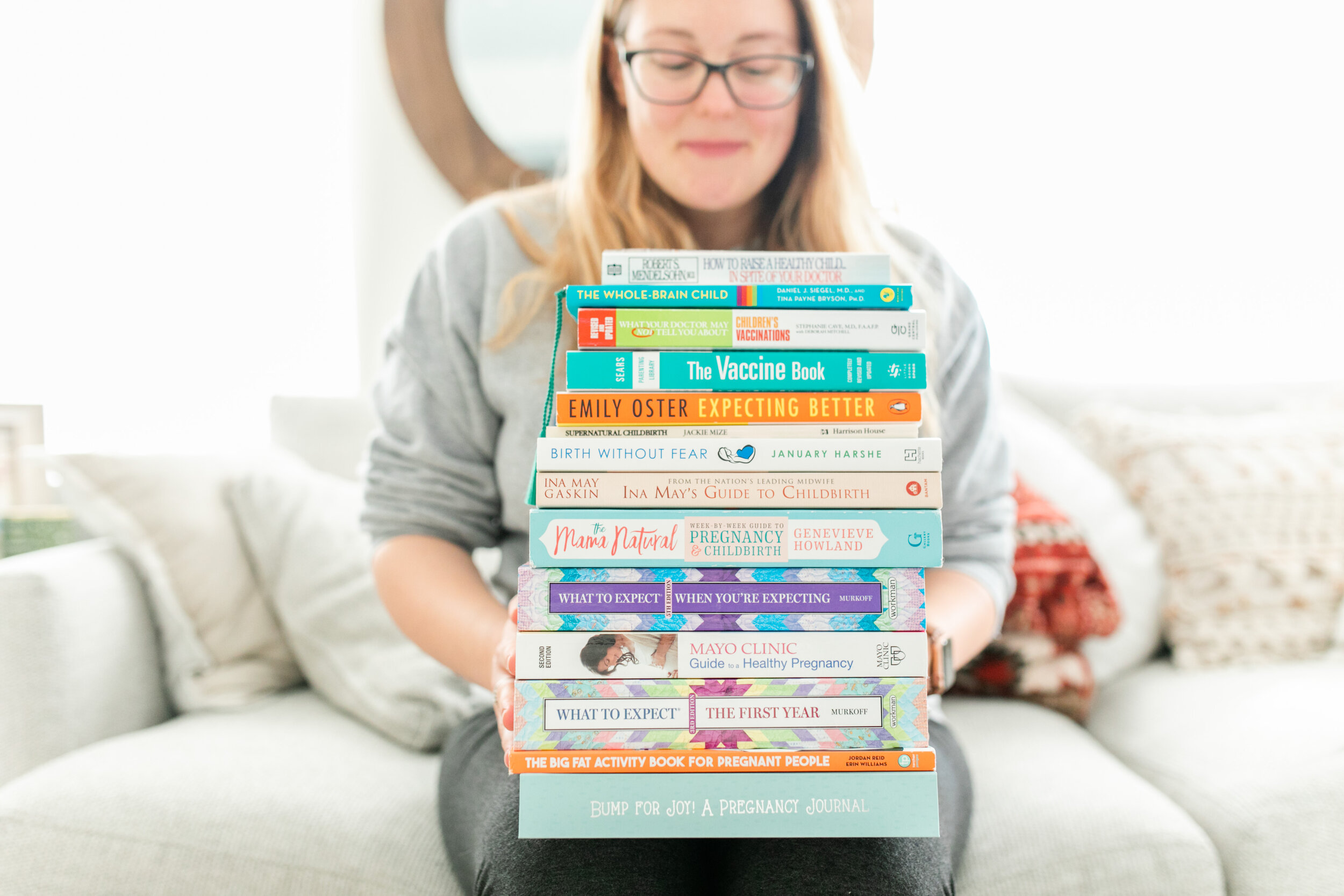Okay, so… I have realized that lately, a lot of my conversations revolve around financial planning or major purchases that we are making as a newlywed couple, and I’m not too sure why that has been happening, but I’m starting to think that maybe it is because I need to start talking about this stuff through a public channel like my blog so that 1) more of our friends and family can already know what we think or plan for when it comes to these things and 2) less of our in-real-life conversations have to be about explaining this stuff! Not that I hate talking about it (personally, I LOVE it, which is weird… maybe I should have been a financial planner…) but I’m starting to get the sense that not everyone likes hearing or talking about a topic like finances. So here in a blog post, they can willingly choose if they want to know more about our somewhat unconventional financial beliefs or they can choose to keep scrolling! If you don’t care for that kinda stuff, this post is not for you. If you do, you’re in the right place! WELCOME! Grab a cup of coffee because you’re going to want to start jotting down notes, making plans for your own finances, and dreaming big dreams for your life! At least I hope so, because that’s my goal with a post like this!
First and foremost, I want to make it clear that I’m talking about this because I fully believe that money is one of the most powerful TOOLS we will ever possess in our lifetimes. It can be used to tear down, destroy, and divide, or it can be used to build up, repair, and do amazing things. We choose to do the latter. In order to do that, we have to be incredibly intentional about what our plan is for our finances and be aware of where each and every dollar is going. I realize this is a taboo conversation to have… but I don’t see why. The statistics show:
- The majority of Americans (two-thirds to be exact) would struggle to come up with $1,000 in a pinch (let’s say a car repair or medical bill)
- Americans owe over $905 billion dollars in credit card debt
- The average American holds $131,431 in total debt (to break it down: $16,000 in credit card debt, $28,000 in auto loan(s), $46,000 in student loans, and mortgage debt at an average of $173,000… and if you’re in an area with a high cost of living like ours, you know that figure is typically much higher. Fun fact: Homeowners on average pay double the amount in credit card interest than renters.)
- When asked what contributed to credit card debt, the most popular answer was “spending more than I can afford on unnecessary purchases.” (Source for the above statistics is here)
So, as taboo as this topic is, maybe more of us need to be talking about this kind of stuff through healthy conversation that openly shares financial wisdom and helpful information. I know we are just millennials, but that doesn’t mean we can’t educate ourselves as much as we can and have a plan for setting our lives up for financial success. At the end of the day, knowledge is power when it comes to our financial practices, and knowing the statistics above is definitely powerful when we think about the people we know and what we may envy in their lives. Statistically, most American’s don’t have $1,000 on hand… and that is as alarming as it is eye-opening.
Money isn’t everything. Don’t get me wrong. Again, it is a tool we can use to build up or destroy. We can use it to build a family legacy for generations to come, to change the world, to provide water for a village in a third world country, to purchase a prom dress for the high school junior who can’t afford one… or we can use it to dig ourselves into a hole that is far more difficult to climb out of than it was to dive into. The only way to avoid the latter is to be AWARE of where our money is going and INTENTIONAL when it comes to planning where we are going to spend it.
So here are a few things I’ve come to realize that are going to sound “weird” or completely “crazy” but I think in the end, they are actually some of the wiser choices we can be making when it comes to managing our finances as newlyweds (and as the years go on)!
- We do not use credit cards regularly. I know, they have rewards! We can get cash back on purchases we would be making anyway! The money is always there and we don’t have to worry about our checking account balance! It’s easy, convenient, and… oh, does that bill say $780 for this month?! HOW much did we spend on that weekend getaway?! We spent a thousand dollars last month and don’t have a new TV in our living room?! “How did this get so high?” In my experience, those are the questions we are asking and the comments we are making FAR more often when we use credit cards rather than “Oh wow! We got so much cash back!” and “What a great reward!” Now, when it comes to my BUSINESS, having a credit card has been immensely helpful (though I still do spend a little more frivolously than I would on my business account’s debit card) and I recommend it for business accounts because you have to make those purchases to keep your business running so you might as well rack up some rewards for that. Yet for personal use, the science shows that more often than not, you’re going to spend far more than you would with a debit card… and the $50 reward you might get back on $1,000 spent doesn’t match up to the hundreds you could have saved had you not used a credit card. Maybe you’re the unicorn that actually spends your credit card like you would a debit card and not a single dollar more. That’s not the case for us, so we just don’t use them, and now our “rewards” look like a lot more money staying in our savings and checking accounts!
ppp - We put more money into savings than we do checking. I know this absolutely cannot be the case for everyone, but after bills, we always put more into our savings account than we do our checking account. We prioritize savings so that we can get closer to specific financial goals, like having an emergency fund, putting 50% down for car purchases, or having 15 year fixed rate mortgage than is no more than 25% of our take home monthly income. (I know… insanely huge goal. Wish us luck. Shoot for the moon, right?) This savings-over-checking practice is one of the reasons why credit cards do not work out too well for us. Since we don’t want to keep a lot of money in our checking account, it doesn’t help to accumulate money on a credit card over the span of 30 days. It’s much easier to spend when there is “no limit” versus only having $250 to work with in a checking account or face an overdraft fee.
There’s one story I LOVE to tell when it comes to sharing this “low balance checking account” lifestyle we live. One time we went out to Korean BBQ with a dozen or so friends and family members. We were all sitting at a long rectangular table in the center of the restaurant with Justin and I at one end and the group spread out all the way down to the other. When the time came to pay, we handed the waitress our debit card and went on with our conversation. A few minutes later, she came back at the far end of the table from us and not-so-discreetly shouted, “Justin? Justin Glasbrenner? Yea, there’s no money in your account.” Yes… this actually happened… in front of our parents… siblings… and friends. The laughable irony was that we had more than enough money in savings to cover the $60 bill, but no one else knew that! “Now everyone thinks we’re poor!” is probably what I whispered to Justin in that moment and no amount of “we have the money, we swear!” would convince everyone that was the case. It was quite the humbling experience, and it was as if God was saying, “Yea, even though you might have started to feel proud for what you have stored up for yourselves, that pride can come crashing down in an instant!” What a great life lesson, which leads me to the third rule…
- We view our money as a tool that does not belong to us, but something that has been entrusted to us to be used to serve. Have you heard of the parable of the servants and the talents? If not, check out Matthew 15. If you have, you know that all of our possessions in this life actually belong to the Lord and not to ourselves. Jesus told this story as a way to say, “God has given you everything you have, and one day you will need to answer for how you spent it.” This goes for money, opportunities to share the gospel, actual gifts and talents the Lord has given us and how we have chosen to use all of these things to bless and serve others and not just ourselves. It’s a great story to read when it comes to how we should approach financial planning as Christians. I fully believe that in an instant, we could lose everything we have stored up for ourselves here on this Earth, whether that’s through an emergency, a market crash, a bank heist, or any other crazy scenario you could dream up. Yes, we keep our money in multiple “pockets” to protect ourselves against worst case scenarios, but there is only so much you can do because we are not in control of everything in our lives. So as tempting as it is to look at what we have, whether that’s a home, a car, or a savings account or retirement fund, and think highly of ourselves or that we are “better” or “more well off” than someone else… all of these things really don’t belong to us because when it’s all over, we can’t take a single penny with us. Our spiritual wellness is so, SO much more important than any amount of credit card debt we may carry or how many zeros are in our bank account. This is all so temporary. The only eternal aspect or impact of our finances will be how we chose to spend them. (Hopefully, that’s to love and serve others, not just ourselves.)
Parable of the Rich Fool (Luke 12:13-21)
13 Then someone called from the crowd, “Teacher, please tell my brother to divide our father’s estate with me.”
14 Jesus replied, “Friend, who made me a judge over you to decide such things as that?” 15 Then he said, “Beware! Guard against every kind of greed. Life is not measured by how much you own.”
16 Then he told them a story: “A rich man had a fertile farm that produced fine crops. 17 He said to himself, ‘What should I do? I don’t have room for all my crops.’ 18 Then he said, ‘I know! I’ll tear down my barns and build bigger ones. Then I’ll have room enough to store all my wheat and other goods. 19 And I’ll sit back and say to myself, “My friend, you have enough stored away for years to come. Now take it easy! Eat, drink, and be merry!”’
20 “But God said to him, ‘You fool! You will die this very night. Then who will get everything you worked for?’
21 “Yes, a person is a fool to store up earthly wealth but not have a rich relationship with God.”
I could recommend several books when it comes to financial wisdom, but I have to start with the Bible before anything else because it’s crazy to me how relevant a book written two thousand years ago can still be in today’s world. The Bible has so much wisdom to share when it comes to our finances! HERE is a good place to start. I don’t know about you, but I find so much comfort in being reminded that there’s so much more to life than money, even with how much power and opportunity it can give us. The amazing, relieving, and freeing truth is that the Lord can (and will) give us SO much more power and opportunity than money ever could if we would just ask. That’s my goal above everything else. To seek Him first and let Him do what He wants with everything He has given us in this little newlywed life of ours.
One of my favorite quotes about money is “Live like no one else so you can give like no one else.” I LOVE that. Did you know that giving brings more happiness than spending money on yourself does? It’s true. Something about being generous makes us feel really, really good inside – and that to me is priceless. Whether that’s a gift of our finances, talents, or our time… giving what we have to others will more often than not be more rewarding than spending and focusing more on ourselves. I think that’s the best rule to remember out of them all, and practices like not using credit cards regularly and focusing on our savings so we can live a life of financial freedom does just that – it provides us with the freedom to serve and give in a way we might not be able to if we lived less fiscally responsible lives.
So, if you didn’t take any notes yet, consider writing this down:
- Our money is the ultimate tool to serve others and make this world a better place – Have you been treating your money like a tool that has the power to change the world?
- Giving brings us longer lasting joy and impact than spending and focusing on ourselves does – How can you serve others with your time, talents, or money today?
- Most people aren’t being as intentional with their finances as they should. What changes can you make in your financial practices to set you up on a path to freedom, both in giving, serving, and using your money in a impactful way?










